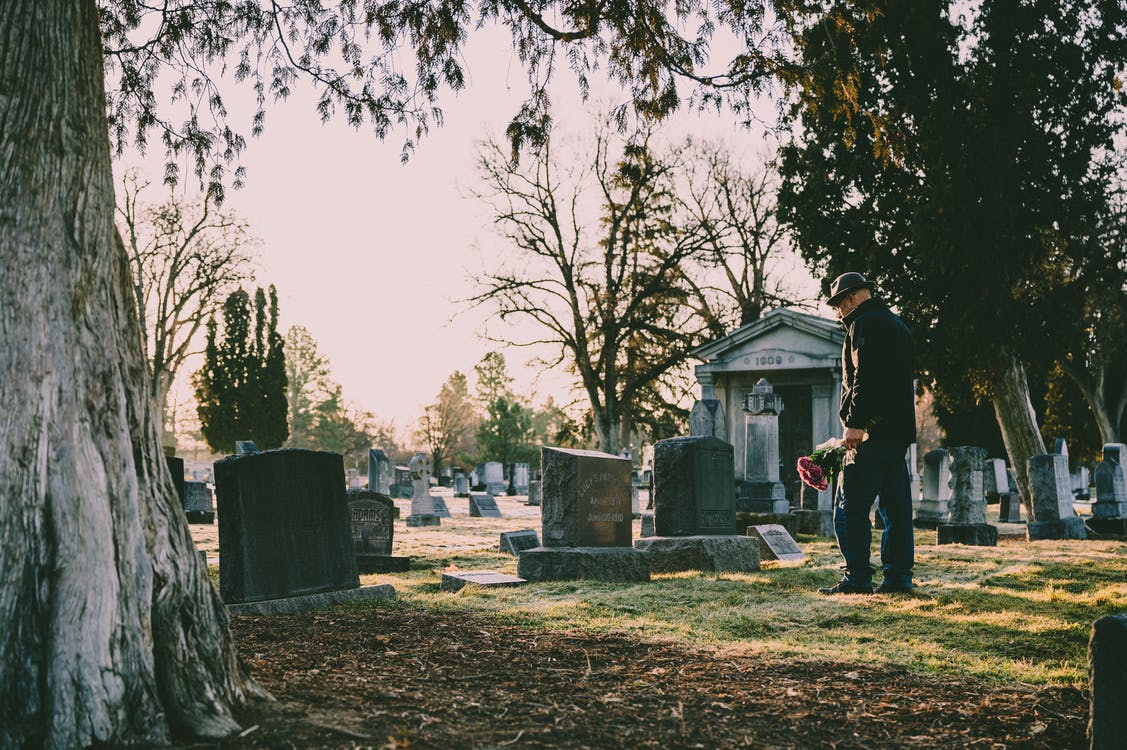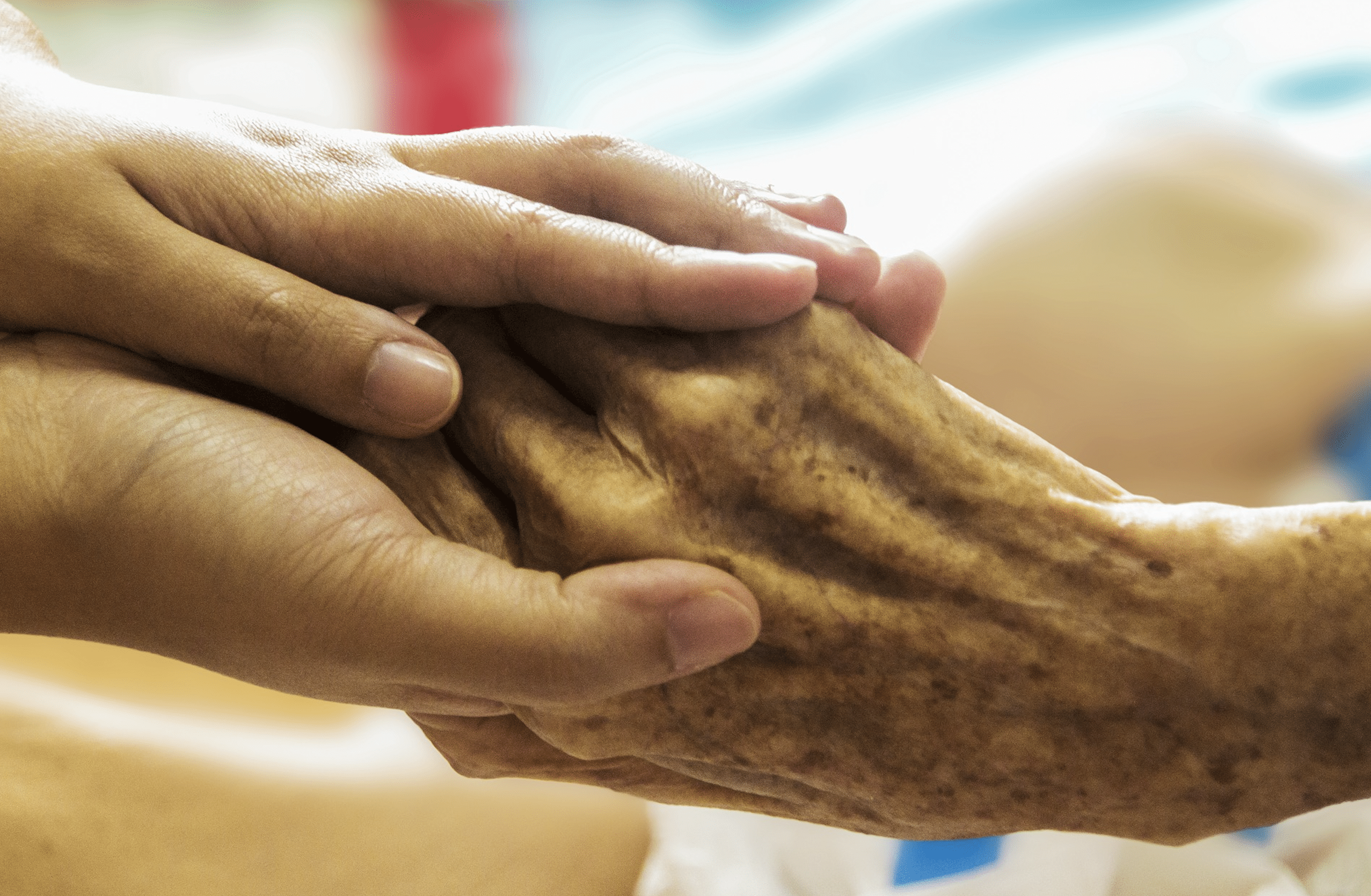
A Guide to Navigating the Death of a Loved One
There’s a lot to think about when losing a loved one, which can be difficult when you’re processing their death. We’re here to guide you through the bureaucracy of what to do when this happens to make this transition as straightforward as possible.
To help you out, we’ve made a checklist of what to do after your loved one passes so that no important tasks fall through the cracks. You’ll also get some tips for taking care of yourself and getting resources about end-of-life. We hope to make your life easier as you navigate this difficult transition.
Remember to take care of yourself during the grieving process
Before we get to the checklist, we want to share some advice about coping with grief. This is a difficult period for you and your family. It’s vital that you take care of yourself during the grieving process. Whenever possible, we suggest:
- Eat regular meals, even when you’re not hungry. Your body needs strength.
- Go for a walk or find some other way to get fresh air and get your body moving.
- Try to appreciate well-wishers. People mean well, even when their comments inadvertently upset you.
- Only complete non-essential tasks when you’re ready. There’s no rush with non-essential tasks. If you need some time, take it.
- Remember that everybody is different. Each person grieves in their own way. Accept the grieving process of family and friends around you, even if it looks different than yours.
- Ask for help if you need it. Family and friends want to support you. Reach out for assistance with tasks, so you can get a well-deserved break.

Let’s now turn to the tasks you need to complete when your loved one dies. This checklist is intended as a general rule of thumb for what to do after someone passes. We understand that your situation will be specific and may require certain actions not listed here.
We’ve listed the following items by their urgency: what to do immediately, what to do within a few days, and what to do within the near future. For non-urgent items, you should take your time and complete the tasks whenever you feel up to it.
What to do immediately when your loved one passes
Get a declaration of death
When your loved one dies, you’ll need to get a declaration of death. This document is essential for later obtaining the death certificate. Different medical workers can issue a declaration depending on your loved one’s situation.
- If your loved one dies at home under hospice care, contact the hospice nurse – they can declare the death.
- If your loved one dies at home without hospice care, call 911. If possible, present a do-not-resuscitate document when they arrive, otherwise paramedics will take emergency action. Paramedics will transport your loved one to the emergency room for a doctor to declare the death.
- If your loved one dies in a hospital, nursing home or residential home, an on-site doctor will declare the death.
Inform medical staff and family members
Once you’ve called medical staff according to your situation, you’ll want to consider the following actions:
- Inform medical staff if your loved one is an organ donor: If your loved one is an organ donor, it’s a good idea to mention this immediately.
- Inform close family members: Call or message close family members to inform them of the death. You may also ask certain members to make phone calls to other people.
That’s everything that needs to be done immediately. Everything else has some leeway so you have the space to grieve while handling the logistics.
What to do within a few days of your loved one passing
Within the next few days, you’ll also want to take care of the following tasks. Remember that you’re not alone during this process. You can ask certain family members to help.
- Get the official death certificate and order at least 10: You’ll need this document for different paperwork at banks, government offices, and more. It’s usually more affordable to order several certificates at once.
- Inform your loved one’s employer: You should contact your loved one’s employer. This is true even if they were retired because the company may have certain life insurance benefits, or other necessary papers to complete.
- If the death occurred abroad: You’ll want to contact authorities at the appropriate embassy or consulate if the death occurred abroad. They’ll give you the right resources for handling end-of-life paperwork.
Besides these tasks, there are a few larger items that need your attention. Let’s take a look at these milestones in the end-of-life phase.
1. Plan end-of-life services
Planning end-of-life services, including a funeral and burial (or cremation), require some thought. This is especially true if you’re planning a funeral without a director, as you’ll need to handle aspects such as programs, music, wreaths, and more. Be sure to ask for help from family and friends to gain their insight on any decision-making, as well as to spread the workload.
You should be aware whether your loved one already had pre-arranged (and perhaps pre-paid) funeral and burial services. Ideally, you would have already discussed end-of-life plans, but if not, you should check that no instructions were left regarding these services in the will.
Here are some of the key areas of planning what to do after someone dies, specifically the end-of-life services:
- Understand and set up burial (or cremation) options: Arrange how your loved one will be laid to rest. If you’re not sure what to choose, you can discuss options with a funeral home.
- Order a casket/urn and identify a burial plot: If you’re working with a funeral home, you may be able to purchase a casket or urn directly from them. If not, some families are turning to online providers to get more affordable casket and urn options. You should also identify the burial plot if your loved one didn’t already have one selected and paid for.
- Plan the funeral or celebration of life: You’ll want to make a plan of who will do the eulogy and who will be pallbearers. You should also look into programs, music, and wreaths. If you don’t want to handle these tasks, you should consider working with a funeral director who will take care of them for a fee.
- Write and submit the obituary: An obituary is important for the community to learn of your loved one’s death. Ask a skilled writer in the family to take care of this task and then submit it to your local newspaper.
- Create a memorial website: Nowadays, some families are creating memorial websites to coordinate all the funeral and burial information in one place, as well as request memories or photos. If interested, it’s a nice way to reach out to the community and avoid making so many phone calls.
2. Determine how your family will pay for end-of-life services
Unfortunately, end-of-life services can be expensive. Your family should look into their financial options in order to cover the costs.
- Understand your loved one’s pre-arrangements: It’s possible that your loved one already made arrangements and pre-paid for services. Instructions may have been left in a will or with an attorney.
- Contact your loved one’s employer to ask about final benefits, any paychecks due, and the company life insurance policy: If your loved one was working at the time of death, it’s especially important to check with their employer to ask about final benefits and payments. Even if your loved one was retired, it’s worth a phone call to verify if they are covered by any company life insurance policy.
- Check if your loved one had sickness, accident, life or private health insurance that covers funeral costs: Your loved one might also be covered by other types of insurance. These insurance policies may be used to cover funeral and burial services. You should verify any benefits with the insurance provider.
- If your loved one was a veteran, they’re entitled to a burial services stipend: Was your loved one a veteran? All U.S. Veterans receive a benefit for burial services. Even if the death wasn’t related to service, you can get reimbursement up to $796 for the burial/funeral and $796 for a plot allowance.
- Determine if you’re eligible for financial assistance: If you fall into the low-income bracket, you may also qualify for financial assistance for funeral and burial services. You should check with your city and state government to find out if you’re eligible for this stipend. There are also some charities that work to help low-income families with burial services.
3. Take care of the deceased’s property
If your loved one owned property, you’ll also want to secure the premises and cancel services that are no longer needed. There are a few key actions you won’t want to miss regarding their property, including:
- Security: Make sure the doors and windows are locked. You might also want to invest in a security system until the house is sold or rented. If interested, you can also contact local police to occasionally check on the house.
- Find a home/kennel for the pet: If your loved one owned a pet, you’ll need to re-home it. Perhaps a family member or friend would like to take care of it. If not, you should look into kennels or pet hotels until you can find a new owner.
- Forward mail: Contact the postal service so that the mail gets forwarded. For security reasons, mail piling up at home is dangerous, as it can inform strangers that nobody is home.
- Water or donate plants: Stop by to water any plants. Or, consider donating them to friends or family.
- Cancel all non-essential services: You may want to keep the electricity and water running, but other non-essential services can be canceled. These include phone plans, streaming services, cable, and shopping subscriptions.
- Secure valuables: If any valuables are unsecured in the house, lock them up in a safe or open a lockbox at a bank for storage. (You should do this with the permission of the executor of the will, of course.)
What to do in the near future after your loved one passes
Within the next few months, you’ll want to consider these non-urgent tasks. You can take care of them whenever you’re ready.
- Order a headstone: Headstones are rarely ready for burial services. You’ll want to order a headstone so that it arrives within the next few weeks.
- Write thank-you notes for well-wishers: You likely received notes, flowers, or meals from well-wishers. When you get a chance, write thank-you notes for these nice gestures.
- Hire an attorney if you need help navigating the will process: If you’re concerned about the will process, consider hiring an attorney to help you through it. It’s not uncommon for lawyers to get involved with more complicated wills.
- Get estate executor help: If you’re looking to ease the burden of being an executor of an estate check out EstateExec.
1. Get the will process started
Your loved one’s will is an essential part of handling their properties and possessions. Without it, it’s difficult to sell their property or donate their assets. Within a few weeks or months of your loved one’s death, you’ll want to get the will process started.
- Contact the executor: You’ll want to get in touch with the executor of the will. This is the person legally responsible for ensuring the will is executed properly. The deceased will name the executor, usually a spouse, child, or close friend. If you’re named the executor, you’ll want to take charge of the following actions.
- Take the will to probate: This is the legal process of executing a will. If you’re the executor, you must bring the will to a local court to start this process.
- Make an official inventory of all assets: Your family should begin the process by getting an inventory of all assets. You can hire an appraiser to take care of this process.
- Ensure mortgage, taxes, and utilities are handled: Certain bills like utilities may need to continue during the will process. As the executor, you should ensure essential bills and taxes are up-to-date.
2. Cover your bureaucratic bases
Last but not least, you may need to take care of some key paperwork that goes beyond the will. This is a comprehensive list of some other areas you’ll need to handle after your loved one passes.
- Contact the landlord to terminate or transfer the lease: If your loved one rented their home or apartment, you’ll need to contact the landlord. You can usually get a lease termination due to death. Or, if you lived with your loved one, you can get the lease transferred to your name. Either way, you’ll need to present a death certificate and work directly with the landlord.
- File final tax return for the deceased: Many families forget the importance of this final tax return. To avoid fees, you should file the final tax return and ensure their finances are up-to-date with the government.
- Close bank, credit card, and brokerage accounts: You’ll need to contact your loved one’s bank, as well as their credit card and brokerage provider. To close these accounts, you’ll need to provide the death certificate and information about the final destination of their finances according to the will.
- Terminate insurance policies: It’s important to close all insurance policies to prevent being further billed. Contact all providers and present the death certificate in order to terminate these policies.
- Cancel the driver’s license: Be sure to cancel your loved one’s driver’s license so that they’re registered as deceased. Cancelling their driver’s license will also help prevent identity theft.
- Register their death with government agencies, including:
- The Social Security Administration: Do this to close any social security benefit programs, such as Medicaid and Medicare. By law, you may also be eligible for a stipend if the deceased was a veteran, for example.
- Passport office: To prevent identity theft, register the death with the passport office. This is especially important if the death occurred abroad.
- Credit agencies: Once again, registering the death with credit agencies can help prevent identity theft.
- Close email accounts: Email accounts are another hotspot for identity theft. You should work to close any email accounts so that your loved one’s email doesn’t become a target. Contact the email provider and present the death certificate to close these accounts.
- Delete or memorialize social media accounts: Finally, you may also want to delete your loved one’s social media accounts. Some networks, such as Facebook, allow you to set the person’s profile to “remembering,” which means others can post nice memories on their wall, but other features are limited. You can request to delete or memorialize an account via the help desk. Or, if your loved one set you as the “legacy contact,” you’ll be able to manage the account directly.
Remembering your loved one
Now, you have all the information about the bureaucratic processes after your loved one’s death. You can use this checklist to complete these steps and handle the paperwork.
As our guide shows, the amount of paperwork when a loved one dies can be overwhelming. We recommend that you ask for help along the way, especially from trusted family members or friends. You might also consider hiring an attorney to guide you through some of the trickier aspects of what to do after someone dies, such as wills.
Make sure to take care of yourself during this transition and remember your loved one in your own way. It’s never easy to move forward after someone dies.
Sources:
- What To Do When a Loved One Dies, AARP, www.aarp.org
- Coping with grief, Which?, www.which.co.uk
Related Articles

Understanding the Differences Between Wills and Trusts
This article has been reviewed by a practicing attorney in 2020 This content is not intended to be a substitute for professional legal advice. Always seek the advice of an attorney or another qualified legal professional with any questions you may have regarding your situation. Choosing the proper estate plan for you and your family […]

Hospice Criteria and Eligibility
Hospice isn’t a topic that’s enjoyable to discuss, but it is important, especially if your loved one is an elderly dealing with a terminal illness and is expected to need hospice services in the near future. As a caregiver, you must familiarize yourself with the hospice criteria and eligibility requirements so that you can prepare […]

Gone Too Soon: 100 Quotes About Unexpected Death
Death is a topic that we often avoid, but it is something that we all have to face at some point in our lives. The death of a loved one can be especially difficult, and when that death is sudden and unexpected, it can be even harder to cope with. In this post, we will […]

20 Sympathy Messages for the Loss of a Mother
Grieving the loss of a mother can be one of the most difficult experiences a person goes through. Finding words to take some comfort in, or to say to someone who has lost such a special person in their life can be challenging. In this blog post, we’ve gathered a list of sympathy messages for […]

28 Common Symbols of Death and Their Meaning
Death is a mysterious force that touches all of us at some point in our lives. Though we may not understand it, we are drawn to symbols and images that represent death. Why do we find these symbols so intriguing? In this blog post, we will explore 10 common symbols of death and what they […]
